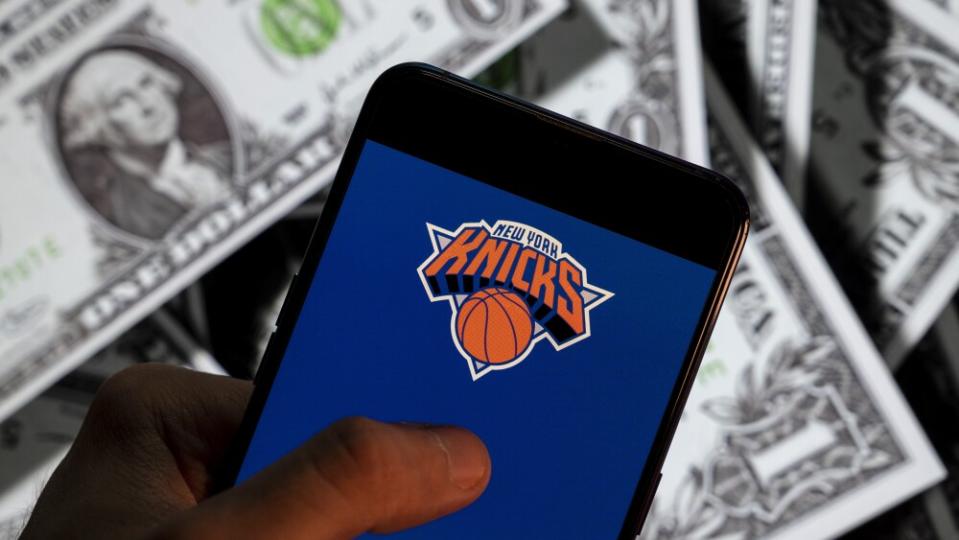Knicks seek $10 million from Raptors in lawsuit alleging a "mole" stole proprietary information

In a lawsuit that has most of the NBA shaking its head and saying "Only Dolan," it was revealed Monday that the New York Knicks are seeking $10 million in damages from the Toronto Raptors for the alleged "theft of trade secrets" from the Knicks and the New York coaching staff.
The lawsuit was filed in August, and the Raptors filed a response in October asking the judge to dismiss the case, saying league bylaws require NBA Commissioner Adam Silver to arbitrate the dispute. Monday the Knicks filed their response to the Raptors filing, putting a $10 million figure on their damages, reports Baxter Holmes of ESPN.
There are a lot of moving parts here, let's break it all down from the beginning, with some thoughts on the entire process mixed in.
• The Knicks filed a lawsuit against the Raptors in August alleging that Ikechukwu Azotam — who by the end of his three years with New York was the director of video/analytics/player development assistant — sent the Raptors organization and rookie head coach Darko Rajakovic more than 3,000 confidential, proprietary files including video scouting files and play frequency numbers, before Azotam joined the Raptors last summer. The argument the Knicks made was, in part, that Rajakovic didn't have the depth of background and didn't know how to build a team structure, so he stole the Knicks (despite Rajakovic having coached in Serbia, having been head coach of the Tulsa 66ers of the G-League, and being an assistant known for player development with the Thunder, Suns and Grizzlies).
• The reaction around the league — and from people who have done Azotam's job with other teams and spoke with NBC Sports — could be boiled down to eye rolls and "only James Dolan" (the Knicks owner is notoriously litigious). While the information was moved in a rather awkward fashion (through Dropbox) it was not seen as anything crazy or outside how things typically operate around the league.
• As ESPN’s Holmes notes, Toronto's first response was to email the NBA's general council and point to the NBA's constitution, Article 24, bylaw "D," which states: "The Commissioner shall have exclusive, full, complete, and final jurisdiction of any dispute involving two (2) or more Members of the Association."
• The Raptors' official response came on Oct. 16, asking the federal judge to throw out the lawsuit based on that bylaw, that this is an internal dispute of the NBA and that the NBA Commissioner is the legal arbiter of that dispute. That response also called the Knicks suit a "public relations stunt" that had no basis for being in a federal court.
• New York's filing on Monday claims the league's constitution does not cover this matter — "There is no nexus between the claims and the NBA Constitution -- it is a dispute about the theft of trade secrets by a disloyal employee, a scenario not contemplated by the NBA Constitution — and that a courtroom is the only fair place this can be adjudicated.
• In addition to the first time a monetary value was attached to the case, Monday's filing also tries to make the case that Silver would not be an unbiased arbiter because he has close ties with Raptors governor Larry Tanenbaum, who also is the chairman of the Board of Governors — the ownership group that Silver reports to and determines his employment and salary. The Knicks' argument is they are suing Silver's boss, so he can't be an unbiased figure who can decide the merits of the case.
• As for what other people around the NBA think of the lawsuit, again, the reaction NBC Sports has heard could be summed up as head shaking. Don't just take my word for it, here is what Seth Partnow — the former Milwaukee Bucks' director of basketball research — said on the “Basketball Intelligence” podcast over the summer:
"I've talked to a couple of dozen people who either currently or formerly worked for teams, the universal response has been, 'What's the big deal?'...
"It's sort of the stuff that's done in a matter of course, just in a particularly clumsy way, seems to be the general consensus in reaction, and pretty universal among the people I've talked to in and around those positions.”
Not in James Dolan's world. So, a lot of lawyers are making a lot of money as this moves through the courts.

